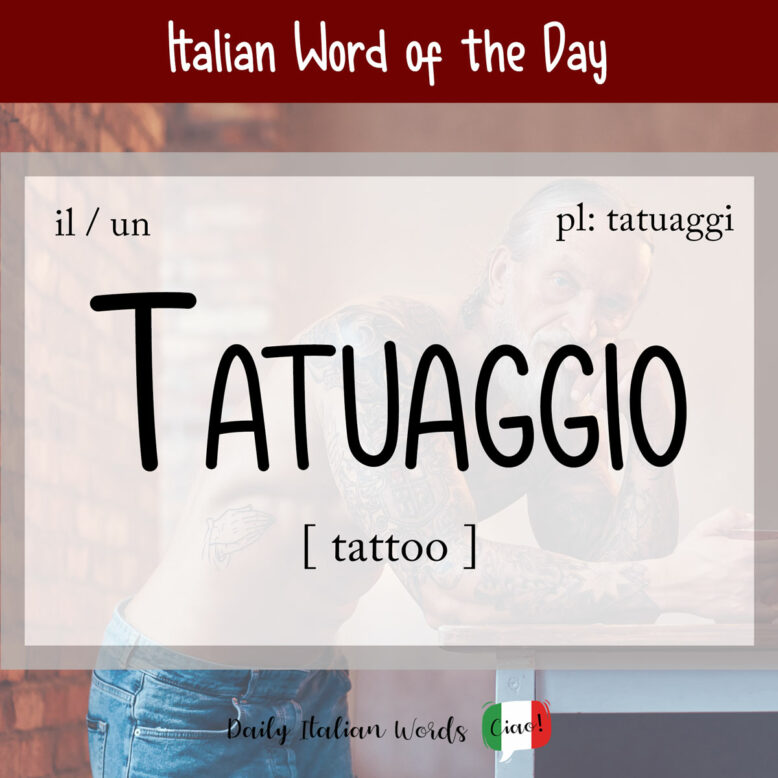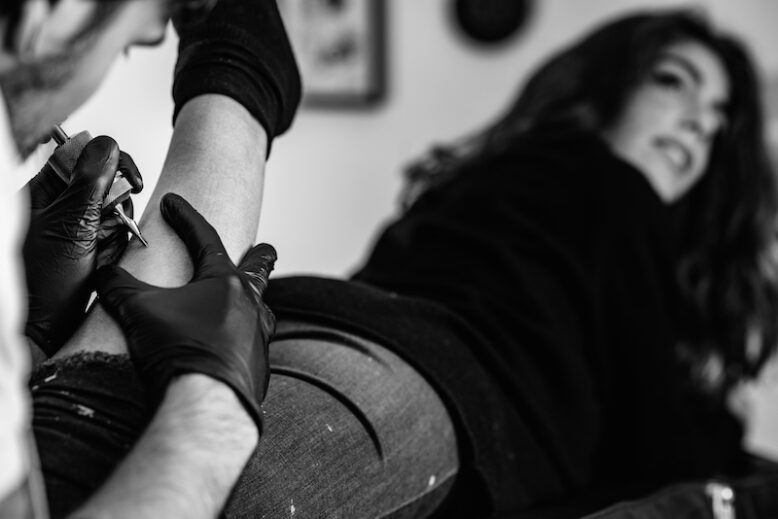The word for a design made by inserting pigment into punctures in the skin is tatuaggio (masculine, plural: tatuaggi) in Italian. It derives from the French tatouage, which in turn comes from the English tattoo.
Learn with our video

There are two ways of saying ‘to get a tattoo‘ in Italian:
- farsi un tatuaggio = to get a tattoo
- farsi fare un tatuaggio = to get a tattoo done
There isn’t a big difference between the two phrases, but the second makes it clear that someone else is giving you the tattoo. (The first could suggest that you are doing the job yourself.) However, because people rarely give themselves tattoos, we can interpret them in the same way.
Domani mi faccio fare il mio primo tatuaggio. Ho un po’ paura!
Tomorrow I’m getting my first tattoo done. I’m a bit scared!
To have a tattoo translates as avere un tatuaggio whereas to get a tattoo removed is farsi rimuovere un tatuaggio. The place where you’d get a tattoo is called uno studio di tatuaggi, although you’ll also hear Italians use the English tattoo shop.

Most tattoos are permanent (permanenti) but for those unwilling to make a lifelong commitment, there is also the option of the non-permanent tatuaggio all’henné (henna tattoo).
Related to the word tatuaggio is the verb tatuare (to tattoo) and the noun tatuatore (tattoo artist).
This article is also available in video format on our YouTube channel. The audio version can be found on Podbean, Google Podcast, Apple Podcast and Spotify.
Heather Broster is a graduate with honours in linguistics from the University of Western Ontario. She is an aspiring polyglot, proficient in English and Italian, as well as Japanese, Welsh, and French to varying degrees of fluency. Originally from Toronto, Heather has resided in various countries, notably Italy for a period of six years. Her primary focus lies in the fields of language acquisition, education, and bilingual instruction.


